| ▲ 서거석 전북교육감이 11일 청사 2층 대강당에서 신년 기자회견을 열고 "지난 6개월은 소통과 협력으로 전북교육 대전환의 기틀을 다지고 새로운 정책을 설계하는 시간이었다면, 올해는 본격적으로 '학생중심 미래교육'의 돛을 높이 올리고 힘찬 항해를 할 수 있게 됐다"는 설명을 하고 있다. / 사진제공 = 전라북도교육청 © 김현종 기자 |
|
서거석 전북교육감이 11일 청사 2층 대강당에서 신년 기자회견을 열고 "지난 6개월은 소통과 협력으로 전북교육 대전환의 기틀을 다지고 새로운 정책을 설계하는 시간이었다면, 올해는 본격적으로 '학생중심 미래교육'의 돛을 높이 올리고 힘찬 항해를 할 수 있게 됐다"고 밝혔다.
특히 "교육가족과 도민들의 성원으로 2023년 예산으로 총 4조6,000억원을 확보했다"며 "속도감 있게 미래교육 환경을 구축하고 수업혁신으로 학생들의 미래역량을 키우겠다"고 강조했다.
그러면서 ▲ 에규테크 기반 구축 ▲ 기초학력 신장 ▲ 수업 혁신▲ 인사제도 개편 ▲ 행정 혁신 ▲ 작은 학교 살리기 ▲ 교권과 학생인권의 조화 ▲ 문예체 교육 강화 ▲ 학생 해외연수 본격화 ▲ 미래학교 운영 등 올해 역점 적으로 추진할 '10대 핵심과제'를 포함한 36개 과제를 제시했다.
이어 "올해 전북교육 핵심과제의 성공적인 수행을 위해서는 도민 여러분의 적극적인 참여와 지지가 꼭 필요하다"며 "실력과 인성을 키우는 전북교육ㆍ도민과 교육가족에게 기쁨과 희망을 드리는 전북교육으로 보답하겠다"고 약속했다.
또 "모든 사업이 하나하나 다 소중하지만 굳이 10대 핵심과제를 선정한 것은 이것만큼은 반드시 확연한 성과를 내야 한다는 의지를 다지고 올 한해 우리의 목표를 뚜렷이 하기 위한 것"이라고 덧붙였다.
이날 제시된 36개 과제는 ▲ 미래(미래를 만드는 교실) ▲ 책임(모두를 위한 책임교육) ▲ 안전(건강하고 안전한 학교) ▲ 자치(소통과 참여로 따뜻한 교육공동체) ▲ 협력(지역과 함께하는 교육) ▲ 공동체(평화와 공존의 세계시민교육) 등 6대 분야로 나눠 추진된다.
또한, 도내 각 학교에서 추천받은 대표 가운데 각 교육지원청이 추천한 40명과 공개모집 절차를 거쳐 추첨을 통해 선발한 50명으로 학생자치를 활성화하는 프로젝트인 전북학생의회가 오는 3월 출범한다.
학생뿐만 아니라 교육지원청 단위에서 학부모 교육네트워크를 구성해 운영하는 등 학부모의 학교 참여 기회도 확대하고 학교가 교육활동에 전념할 수 있도록 학교업무 지원도 강화된다.
이 밖에도 기초학력 책임지도로 공교육을 강화하기 위해 새 학기가 시작되는 오는 3월 초등학교 2학년부터 고등학교 1학년까지 진단검사를 실시하고 6월과 9월 자율 향상도 검사 및 12월에 1년 동안의 성장 정도를 진단한다.
이를 통해 기초학력 미달 학생에게 협력교사 100명ㆍ학습지원튜터 300명을 투입, 맞춤형 기초학력 향상 프로그램을 제공한다.
본청과 지역 교육지원청에는 학력지원센터를 둬 기초학력 신장을 돕는다.
독서와 인문교육도 강화되고 유아교육의 공공성을 강화하고 보편적 교육 복지 실현을 위해 사립유치원 유아 무상교육비를 1인당 13만5,000원을 지원하는 방안도 포함됐다.
다문화 학생을 위해서는 부모나라 언어교실을 운영 및 상호존중과 배려의 문화 다양성 교육 실현 및 전교생이 10명 미만인 아주 작은학교는 교육 주체가 참여하는 공론화 과정을 거쳐 통합이 추진된다.
통합된 학교에는 미래학교와 연계한 학교시설 구축ㆍ지역 여건을 고려한 통학 지원ㆍ지역 특색을 살린 교육과정 운영 등 다양한 혜택을 부여한다.
전주 에코시티 학교 신설 추진 등 도시개발지역 교육 여건 개선에도 손을 놓지 않을 계획이다.
☞ 아래는 위 기사를 구글 번역이 번역한 영문 기사의 '전문' 입니다.
구글 번역은 이해도를 높이기 위해 노력하고 있으며 영문 번역에 오류가 있음을 전제로 합니다.
【Below is the 'full text' of the English article translated by Google Translate.
Google Translate is working hard to improve understanding, and assumes that there are errors in the English translation.】
Geoseok Seo, Superintendent of Jeonbuk Office of Education, held 'New Year Press Conference'
Future education focus… 'Presentation' of 10 key tasks to develop skills and character
Reporter Kim Hyun-jong
Seo Geo-seok, Superintendent of Jeonbuk Office of Education held a New Year's press conference at the auditorium on the second floor of the government building on the 11th and said, "If the past six months have been a time to lay the groundwork for a great transition in Jeonbuk education through communication and cooperation and design new policies, this year will be 'student-centered future education' in earnest." We can hoist our sails high and sail vigorously."
In particular, he emphasized, "We have secured a total of 4.6 trillion won in the budget for 2023 with the support of the educational family and citizens," and "we will build a future education environment with a sense of speed and develop students' future capabilities through class innovation."
At the same time, ▲ Establishment of foundation for Egutech ▲ Improvement of basic academic ability ▲ Class innovation ▲ Reorganization of personnel system ▲ Administrative innovation ▲ Revitalization of small schools ▲ Harmony between teaching rights and student human rights ▲ Reinforcement of literary and artistic education ▲ Full-scale overseas training for students ▲ Operation of future schools, etc. 36 tasks were presented, including the '10 key tasks' to be promoted.
He continued, "For the successful implementation of this year’s Jeonbuk education core tasks, active participation and support from the citizens of the provinces is essential." promised
He added, "Even though each and every project is precious, the reason why we chose the 10 key tasks is to solidify our will to achieve tangible results and to make our goals clear this year."
The 36 tasks presented on the day are ▲ Future(classrooms that create a future) ▲ Responsibility(responsible education for all) ▲ Safety(healthy and safe schools) ▲ Autonomy(warm education community through communication and participation) ▲ Cooperation(education with local communities) ▲ Community(Global Citizenship Education for Peace and Coexistence)
In addition, the Jeonbuk Student Council, a project to promote student autonomy, will be launched in March with 40 representatives recommended by each school in the province recommended by each education support office and 50 selected by lottery through an open recruitment process.
Opportunities for parents to participate in school will be expanded, such as organizing and operating parent education networks at the education support office level as well as students, and school work support will be strengthened so that schools can concentrate on educational activities.
In addition, in order to strengthen public education with responsible guidance for basic academic ability, a diagnostic test is conducted from the 2nd grade of elementary school to the 1st grade of high school in March when the new semester begins, self-improvement test in June and September, and year-long test in December. Diagnose the degree of growth.
Through this, 100 cooperative teachers and 300 learning support tutors are provided to students with insufficient basic academic ability to provide customized basic academic ability improvement programs.
The main office and regional education support offices have academic support centers to help improve basic academic abilities.
In order to strengthen reading and humanities education, strengthen the public nature of early childhood education, and realize universal educational welfare, a plan to support 135,000 won per person for free education for children at private kindergartens was also included.
For multicultural students, language classes in their parents' countries are operated, cultural diversity education of mutual respect and consideration is realized, and integration of very small schools with less than 10 students is promoted through a public debate process in which the educational subject participates.
Integrated schools are provided with various benefits, such as building school facilities in connection with future schools, commuting support considering local conditions, and operating a curriculum that makes use of regional characteristics.
We will not let go of improving educational conditions in urban development areas, such as promoting the establishment of new eco-city schools in Jeonju.















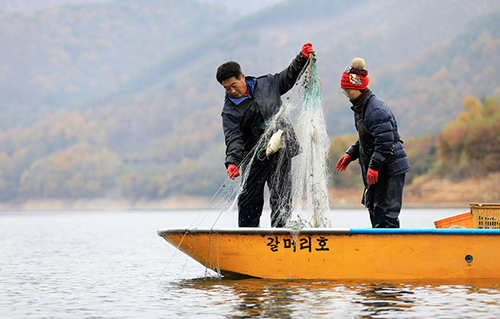
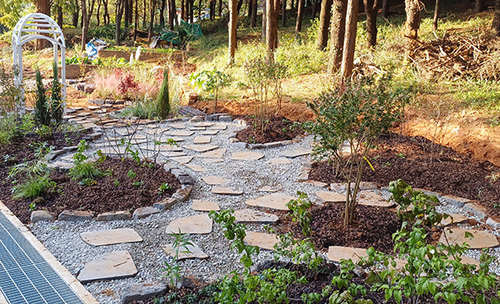
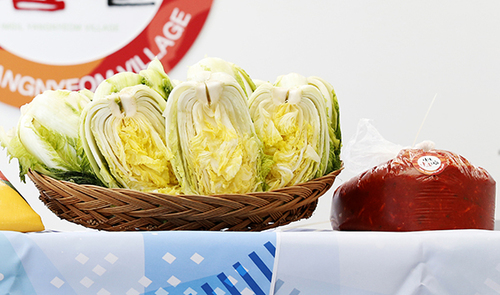
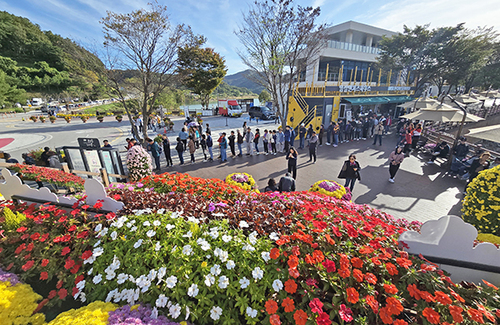
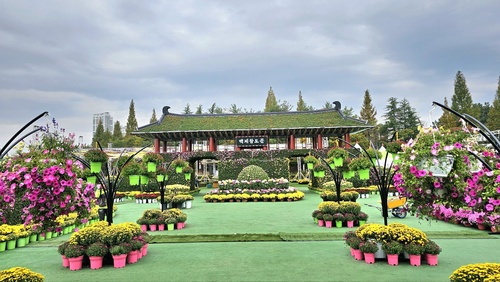
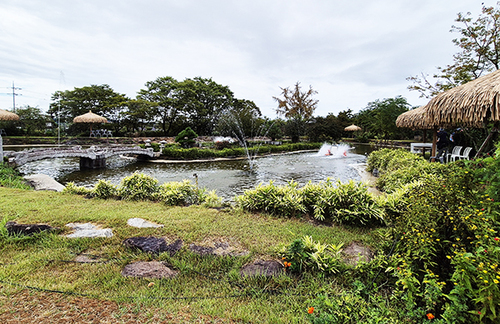
 많이 본 뉴스
많이 본 뉴스











